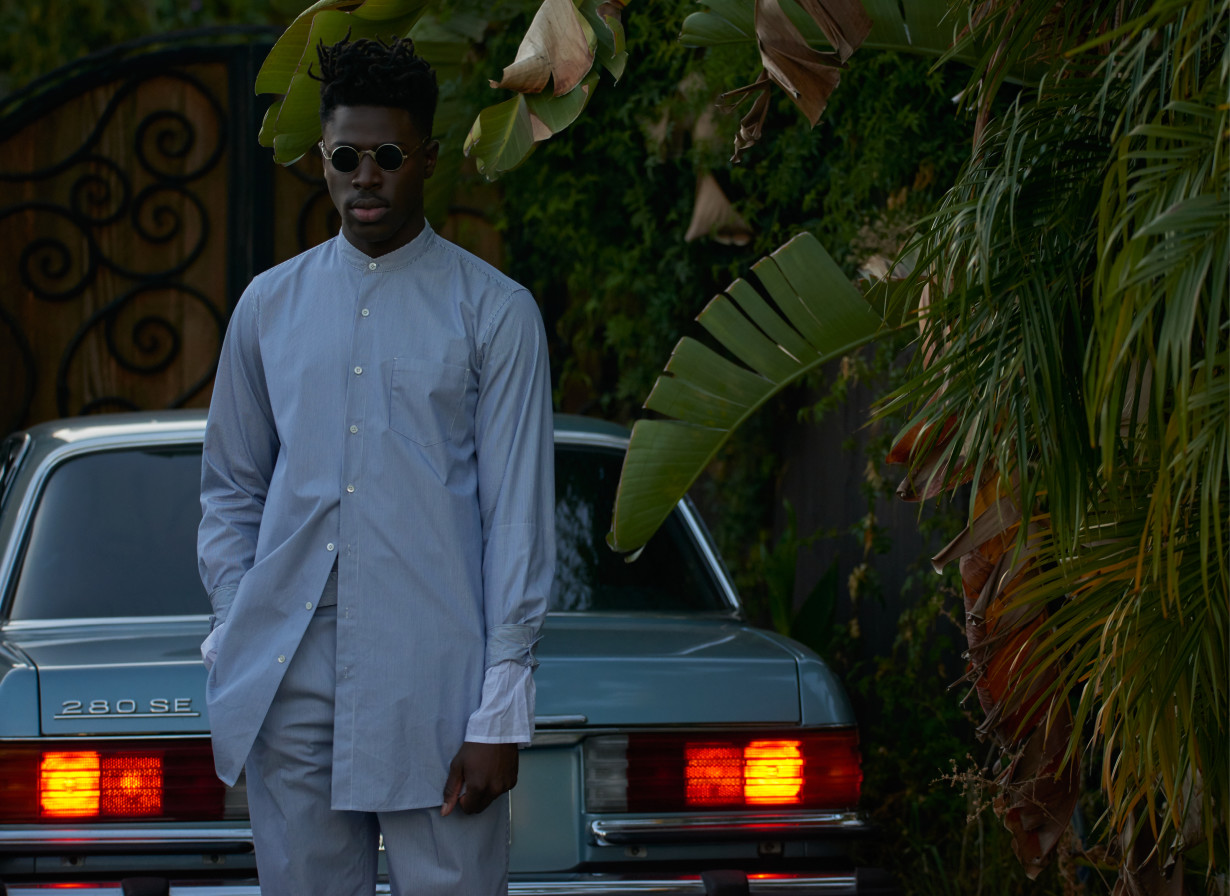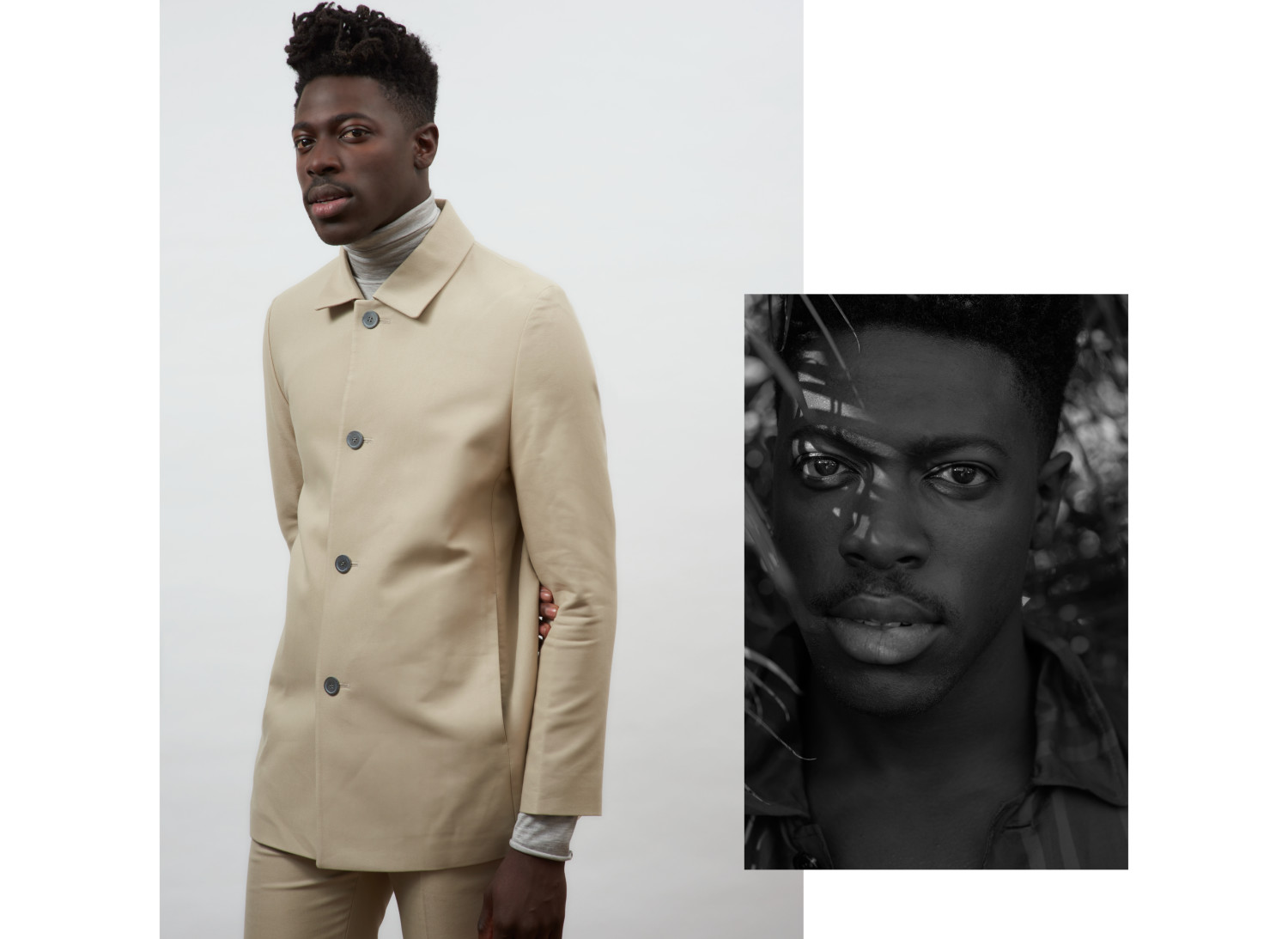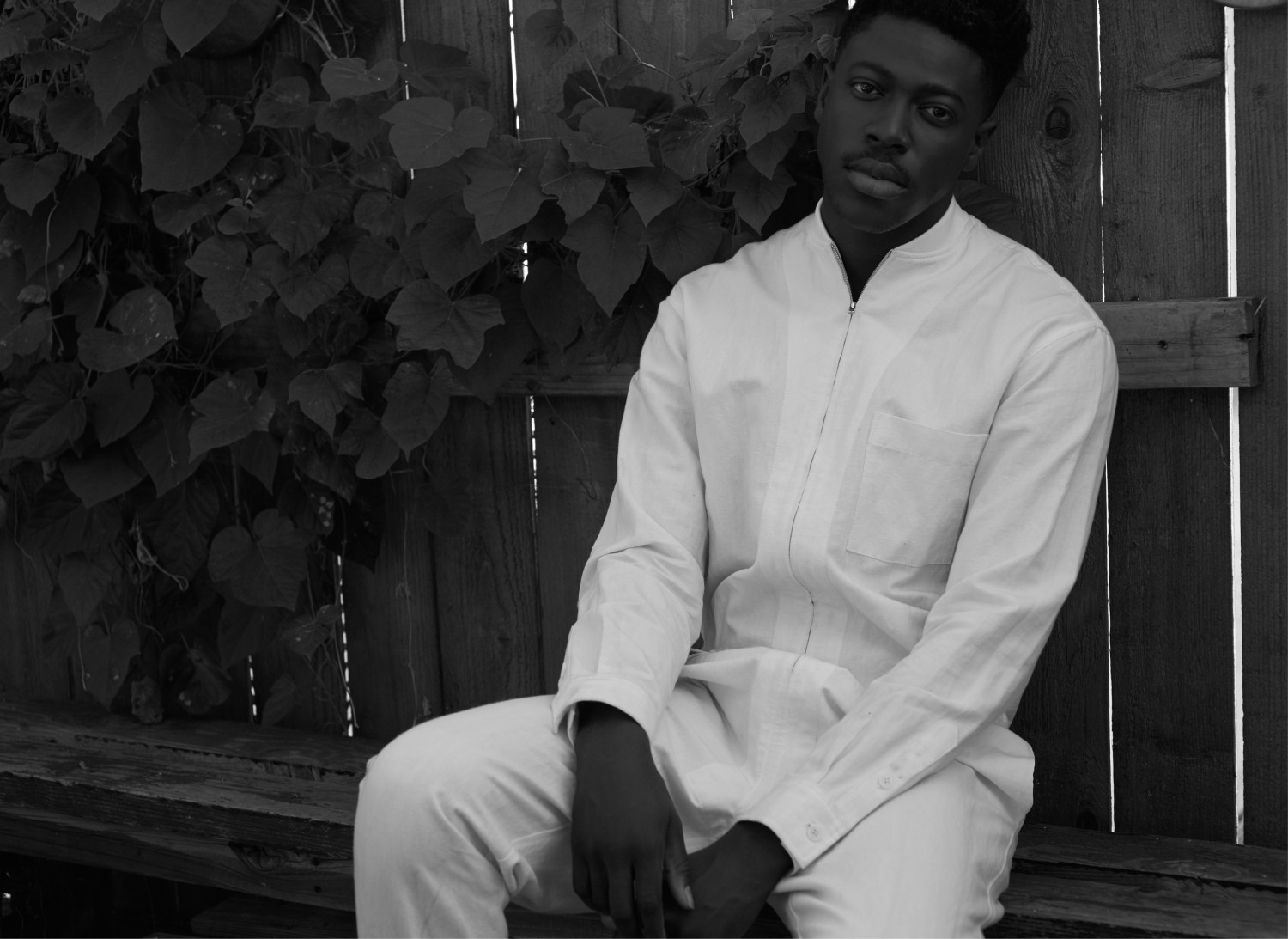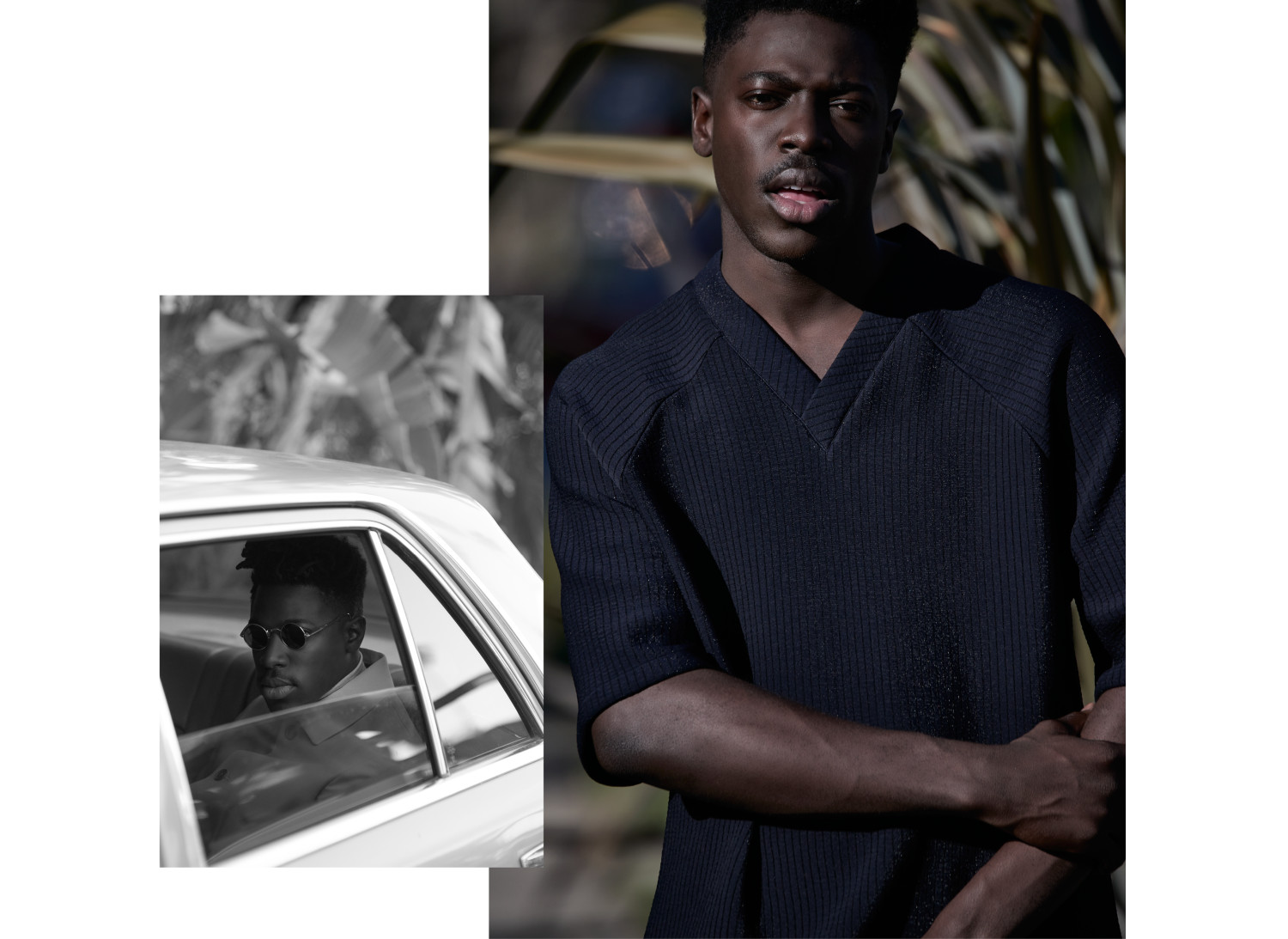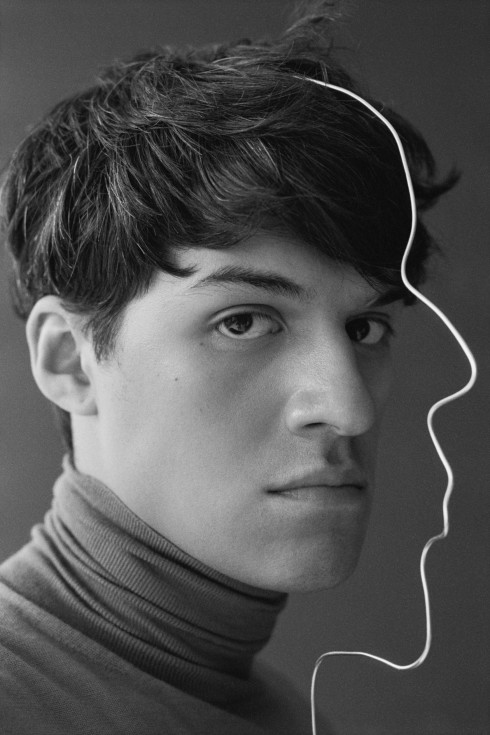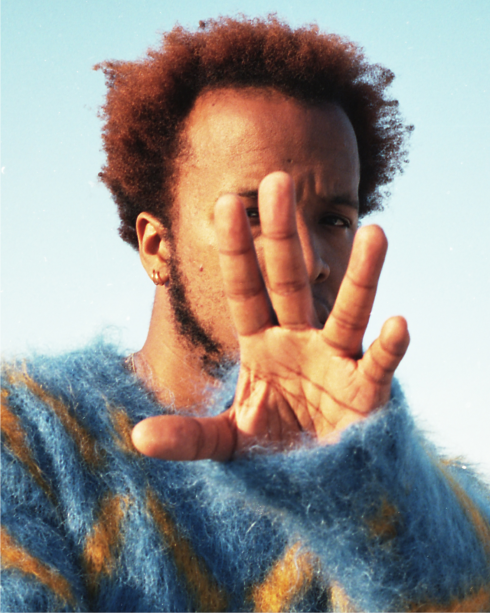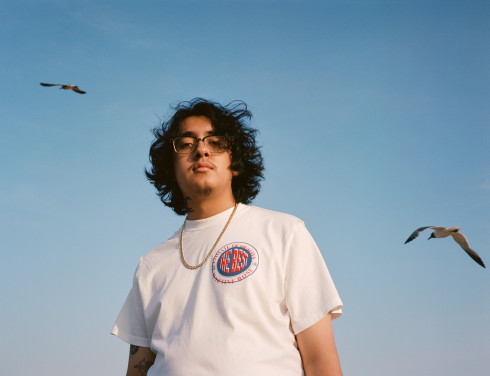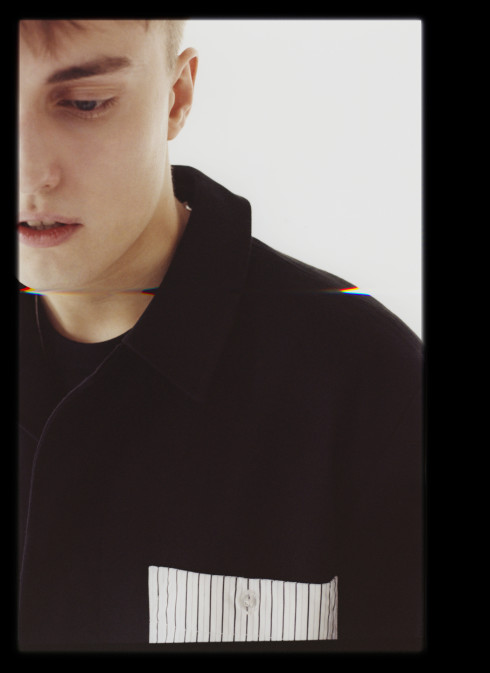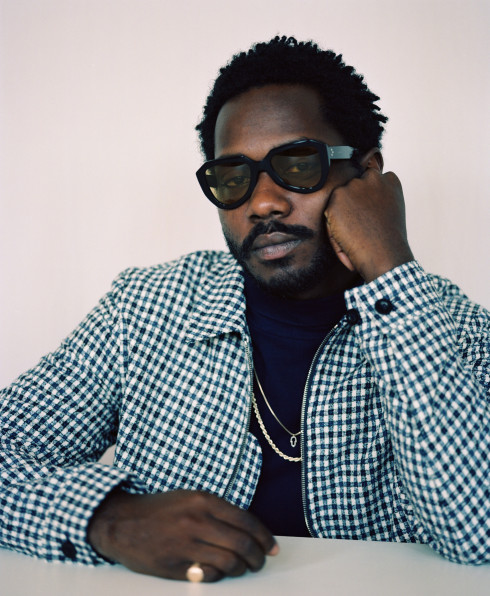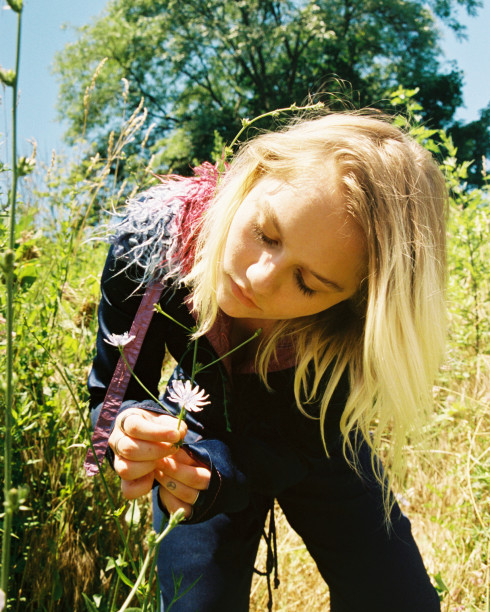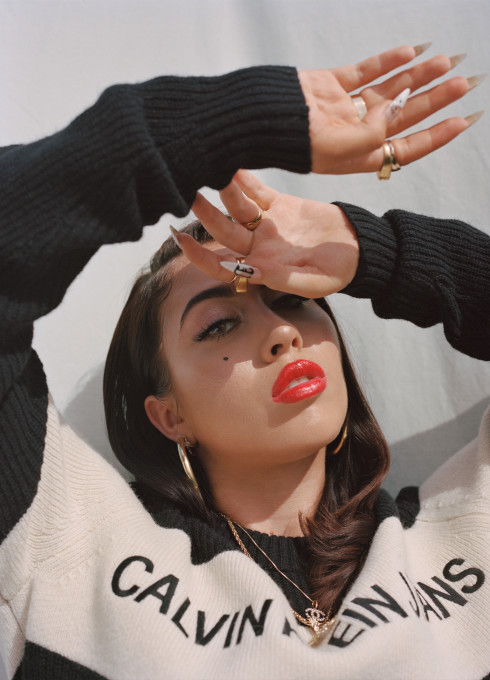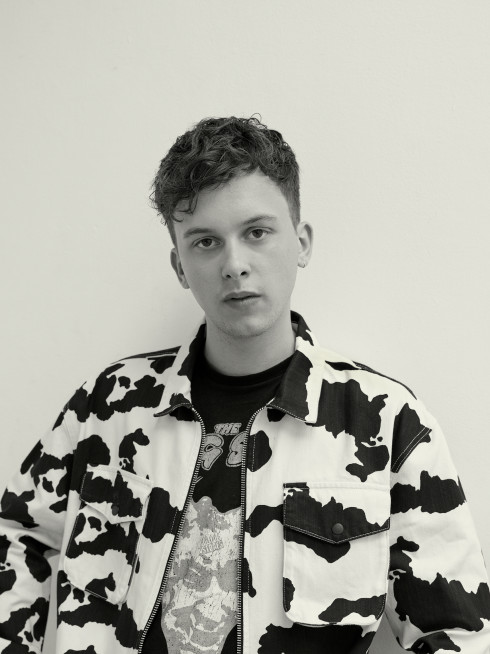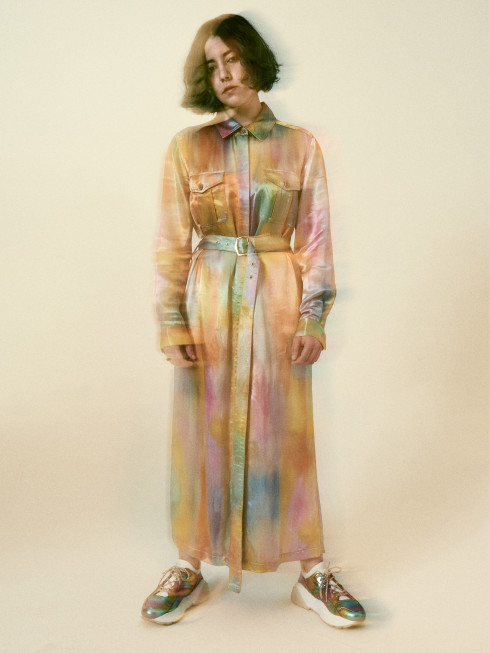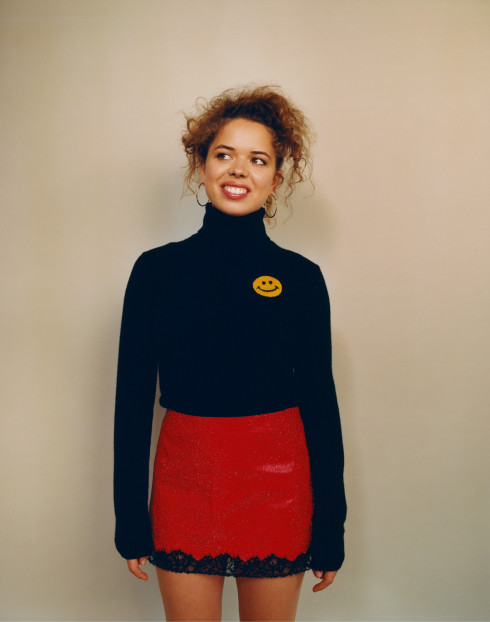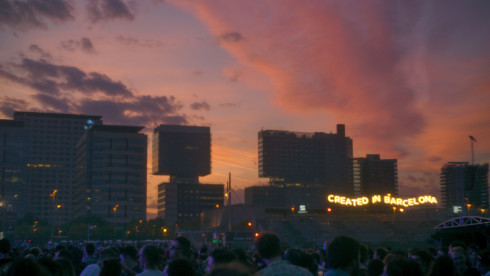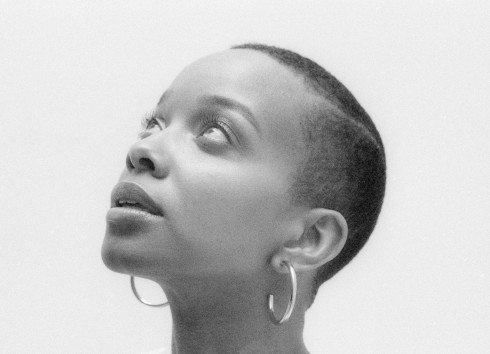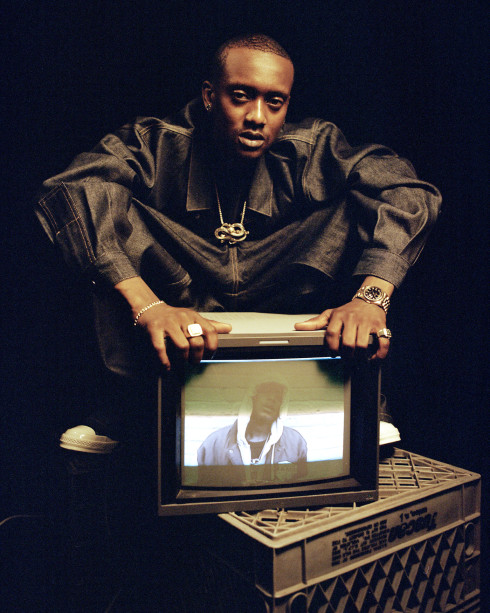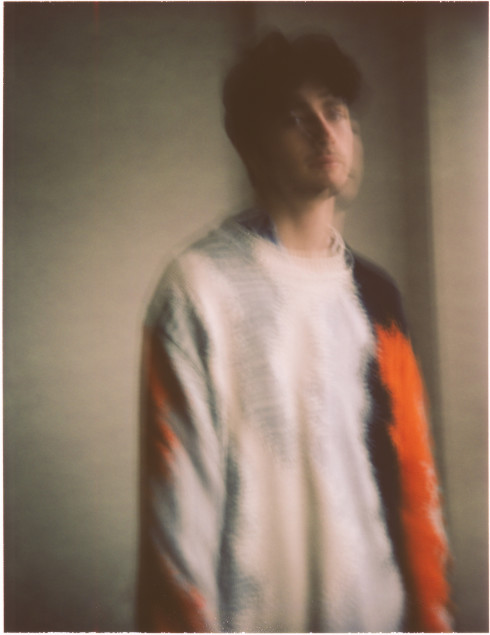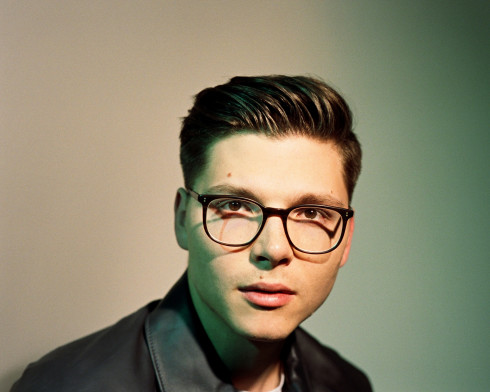- By
- Ashley Simpson
- Photography by
- Mark Squires
Styling by Nicolas Klam at Jed Root. Grooming by Jakob Sherwood.
MOSES SUMNEY
Over the last year and a half, Los Angeles-based singer-songwriter Moses Sumney has opened for Sufjan Stevens, played with the Yeah Yeah Yeahs, and shared a po’boy—then took to the stage—with Solange. He generally performs quietly, with just a guitar and his own unaltered voice, but he gathered together a full ensemble for his Hollywood Bowl show with Erykah Badu and St. Vincent last August. There’s buzz around him—on Pitchfork “Best of 2015” lists, on film at Nowness, and in and around the Los Angeles music scene. His music is inward looking and lyrically unembellished, the sort of stripped-down, gently introspective but still compositionally intricate—material apt to garner comparisons to the alt-folk likes of Bon Iver and Grizzly Bear.
You would never have guessed that Sumney, who grew up between Accra, Ghana, and Southern California, was shy to start. “When I was like twenty and I moved to Los Angeles [to attend UCLA], I had the realization that I never performed alone really and I was so afraid of doing it,” recalls the 25-year-old artist over the phone. “But I always imagined at some point I would start doing it, and so I had to just take a leap of faith—because I felt like I was rotting away, like I was going to die.”
The way Sumney felt about performing was both his burden and his salvation. “I kind of just stepped out and started singing in the dorm,” says Sumney, who was born in San Bernardino to pastor parents, moved with them to Ghana at age ten, and then back to California at sixteen. “At some point, [my band] got entered into a dormitory talent show competition,” he says laughing. “[It was] kind of silly, but amazing for me because I needed those baby steps. I found it mortifying the whole time, but we had to do it. It was literally piece by piece by piece.”
Eight years before these baby steps, the artist wrote his first songs at age twelve. He was living in Ghana at the time, feeling much like an outsider in a place that should have been home. “I had a pretty intense case of culture shock—and it’s interesting to have culture shock with a culture that’s meant to be your own culture,” he reflects. Sumney had no formal training—he didn’t start learning guitar until he was twenty or twenty-one—and his genre of choice was “a little” country. “I don’t know where I picked it up from, but I only listened to country music,” says the musician, who also came to R&B and pop through his older sister.
In his adolescent years, Sumney’s music was meant only for himself. “I started writing music when I was twelve years old, but I was a very quiet, insular middle child, so I would actually write songs, but I would keep them to myself,” he explains. “I would hide my song book in my mattress. So I was writing songs and kind of engaging with the world through music, but in a very private, personal way.”
Lately, Sumney has become comfortable with sharing his music with the public, but his newest output—which thus far has included “Seeds” (a weaving, warmly layered track produced by Grizzly Bear’s Chris Taylor) and the soothing post-folk anthem “Plastic,” the latter of which was released on his 2014 EP, Mid-City Island—still has the intimacy of songs meant to be sung in a bedroom. There’s a sparseness to his words and a comforting, delicately tangled drum to the melody—with looped lyrics calmly pointing to the ways in which we make ourselves and the people we love disposable, the façades we create, and the spaces we inhabit. He says he’s less interested in modern music than in “music that sounds like it’s from another time.” (This means Stevie Wonder and Unknown Mortal Orchestra, at least for now.)
The ease and homey feel of Sumney’s creations belies deeply considered development. “I’m either writing and recording, or laying in bed thinking about the weight of the world,” he grins. “[Existential crisis and writing music]—those are my only two modes.”
These days, Sumney is slowly working on his début album for Terrible Records (Chris Taylor’s imprint) in Los Angeles, which he hopes to release this coming fall. “Some days, I get really overwhelmed and I just stay in bed and don’t talk to anyone,” he says. “I’m making the album completely independently, and it’s been important to tap into whatever creative process I want to without that creativity being filtered. I think there is probably no such thing in this day and age of a completely pure space. I think it’s impossible to create a work of art without external inertia, but I think it’s more important to try.”
This means plenty of solitude—which he stresses is a theme of the album, one that he hopes people will consider anew upon listening—and the composition of what he describes as anti-love songs. “I don’t want to speak too much about the things coming out, but I’m particularly interested in, what’s the word, atypical romantic involvement,” he explains. “I’ve been so in my head about it lately, just writing about the absence of love. I think that’s more interesting to me than writing love songs at this point. I don’t know—I could be wrong—but I feel like there are so many love songs in the world right now and there’s not as much love as there are love songs.
“Yeah, I feel like we’re pretty good on love songs. We’ve got them down,” he adds. “Let’s explore what else is out there.”
Moses Sumney performs at the Pitchfork Music Festival on July 15 in Chicago.
- By
- Ashley Simpson
- Photography by
- Mark Squires
Styling by Nicolas Klam at Jed Root. Grooming by Jakob Sherwood.
